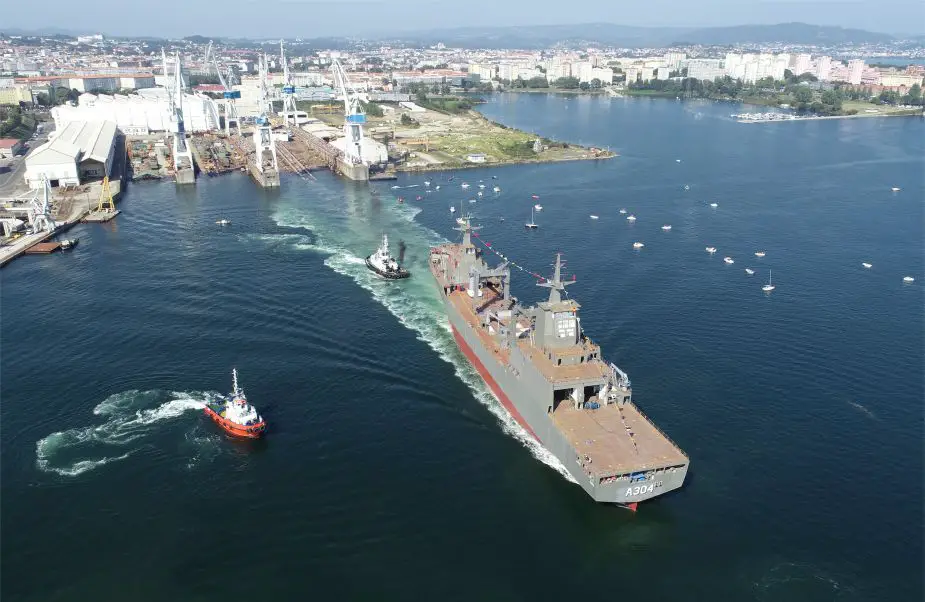The Royal Australian Navy is another step closer to welcoming its new fleet of support tankers into service, following the successful launch of NUSHIP Stalwart on August 31, 2019, ceremony in Ferrol, Spain. The NUSHIP Stalwart is based on the Spanish Navy's Cantabria class AORs (Auxiliary Oiler Replenishment).
The Royal Australian Navy is another step closer to welcoming its new fleet of support tankers into service, following the successful launch of NUSHIP Stalwart on August 31, 2019, ceremony in Ferrol, Spain. The NUSHIP Stalwart is based on the Spanish Navy's Cantabria class AORs (Auxiliary Oiler Replenishment).
 The launching ceremony of the of NUSHIP Stalwart AOR (Auxiliary Oiler Replenishment) ship on August 31, 2019, in Ferrol, Spain. (Picture source Australian Navy)
The launching ceremony of the of NUSHIP Stalwart AOR (Auxiliary Oiler Replenishment) ship on August 31, 2019, in Ferrol, Spain. (Picture source Australian Navy)
The delivery into service of the Supply class replenishment vessels from next year will provide Navy with vital afloat logistics support to enable our ships to remain at sea longer.
Chief of the Royal Australian Navy, Vice Admiral Michael Noonan AO, RAN said the Supply class AOR vessels will enable Navy to maintain a long-term presence at sea and provide combat support to our frigates, destroyers and combatants wherever they operate in the world.
“NUSHIPs Stalwart and Supply will extend our warships’ endurance and operational range by providing bulk fuels, potable water, stores and explosive ordnance to naval vessels operating at sea,” Vice Admiral Noonan said.
NUSHIPs Stalwart and Supply will replace the current replenishment tankers HMAS Sirius and ex-HMAS Success, which was decommissioned on 29 June 2019.
The ships are intended to carry fuel, dry cargo, water, food, ammunition, equipment and spare parts to provide operational support for the deployed naval or combat forces operating far from the port on the high seas for longer periods.
In addition to replenishment, the vessels can be used to combat against environmental pollution at sea, provide logistics support for the armed forces, and to support humanitarian and disaster relief (HADR) operations following a natural disaster.







